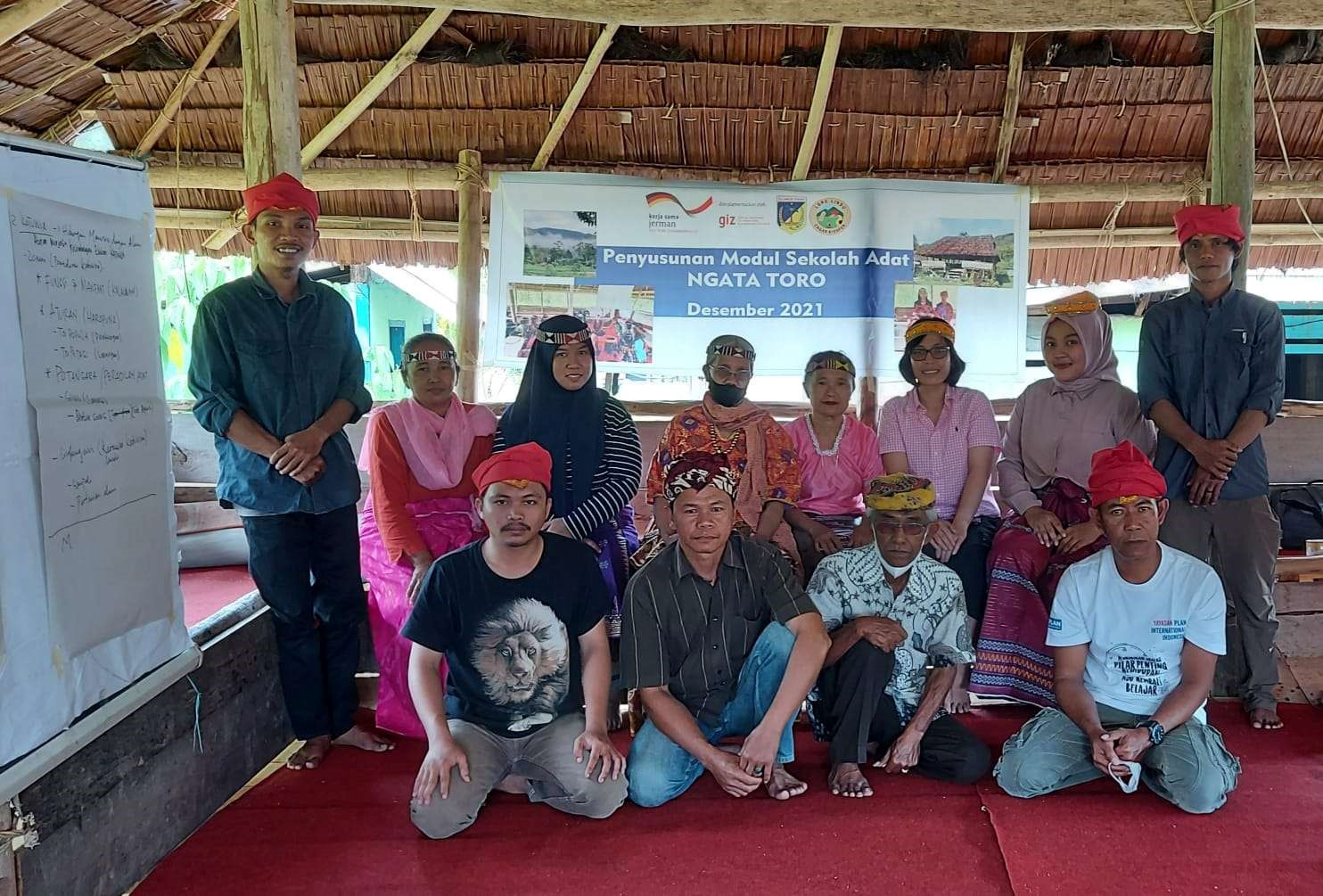
The village of Toro, which is located in the Lore Lindu Biosphere Reserve area, has a Customary School that teaches local languages, as well as the making of traditional crafts, customary law, cultural traditions and local wisdom in relation to the management of natural resources in order to maintain ecological balance for the younger generation. In an effort to strengthen the role of its Customary School, the Toro Village Customary Women's Organization (OPANT) has developed a teaching module that can be used as a guide for the development of learning tools, from the planning and management of study activities to the setting of regulations for teachers. This teaching module should prove highly useful for the Customary School teachers, who currently number around 10 persons, as each teacher has different skills, including Katuwua (the order of human relations with nature), Hintuwu (the order of human relations with humans), Pomebila (manners within the family and society), art and culture, traditional institutions and crafts.
The new Customary School teaching module was developed from 9 - 16 December 2021. Moreover, a series of activities was implemented during the development of this teaching module and these culminated with a tree-planting session at the river nearest to Toro’s rice fields. The planting session was held on 17 February 2022 and inaugurated various student activities in sustainable natural resource management, the conservation and protection of local plant species, and the protection of rice fields from the danger of being flooded by nearby rivers.
The tree planting session got underway with a traditional village cleansing ceremony known as Potapahi Tana or Popee Hiaka, which was led by Toro’s customary leader, Andreas Lagimpu. The ceremony began with prayers being offered by local leaders and continued with lunch, which was eaten with traditional cutlery known as dulang. At the end of the ceremony, the attendees held a mass prayer for health and abundant harvests, and this was followed by expressions of gratitude offered by traditional leaders, which involved the carving of chickens in the river.
The series of planting activities was brought to a conclusion by the Head of OPANT, Rukmini, who expressed the hope that FORCLIME would continue to support activities within Customary Schools, including the development of student activity worksheets, natural disaster management training for students, plastic waste management training for students and the community, and capacity building for teachers.
As a follow-up to the development of this teaching module, the Customary School will conduct a six-month trial of teaching materials. After these materials have been tested, improvements and revisions will be made to them so that the modules contained therein can be used as example materials by other villages.
For more information, please contact:
Ismet Khaeruddin, Senior Advisor for the Biodiversity Focal Point for KFW Forest Program 3 and Provincial Coordinator for Central Sulawesi
Fikty Aprilinayati, Advisor for Sustainable Forest Management and Biosphere Reserve Management






